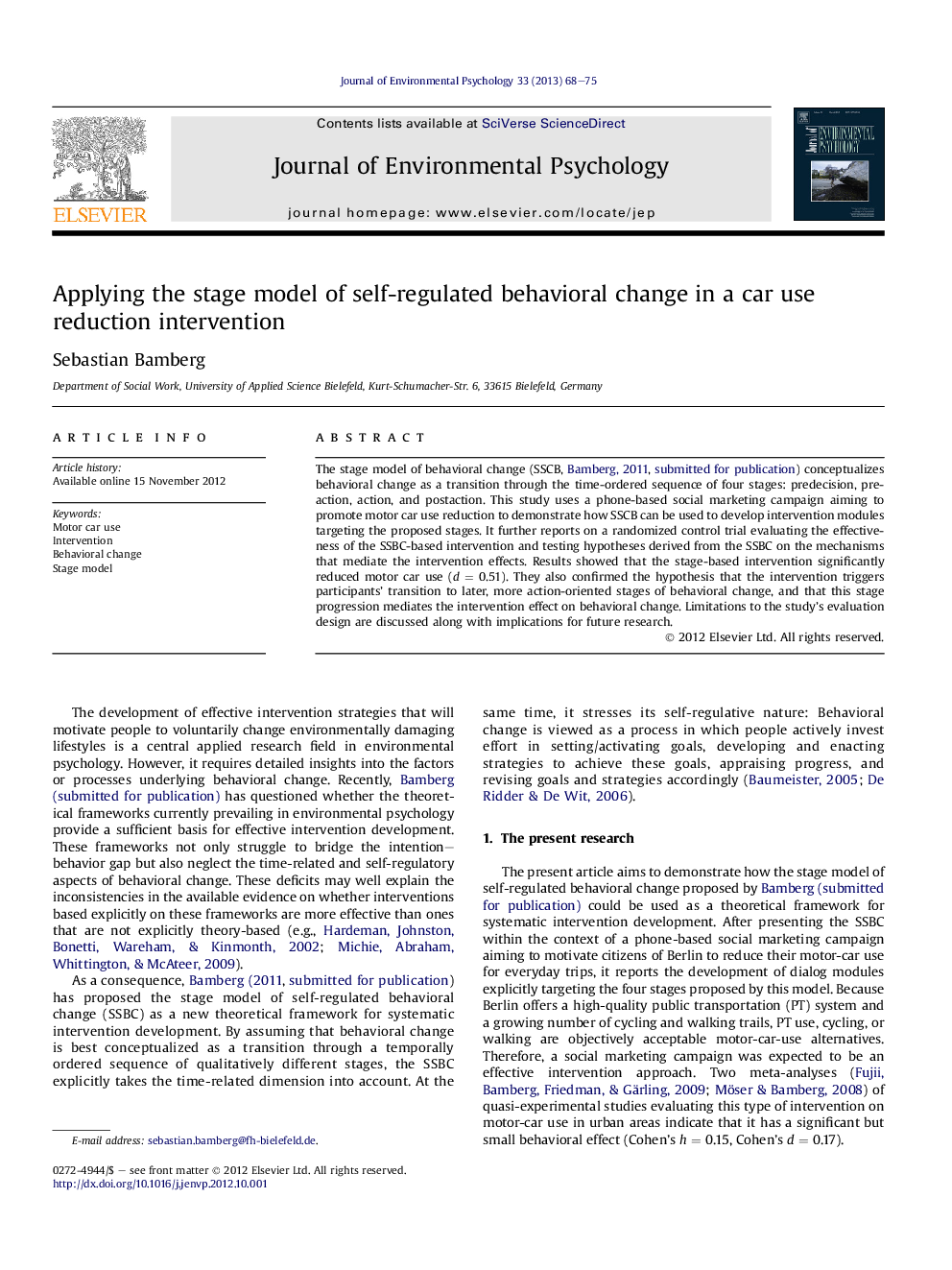| Article ID | Journal | Published Year | Pages | File Type |
|---|---|---|---|---|
| 885704 | Journal of Environmental Psychology | 2013 | 8 Pages |
The stage model of behavioral change (SSCB, Bamberg, 2011, submitted for publication) conceptualizes behavioral change as a transition through the time-ordered sequence of four stages: predecision, preaction, action, and postaction. This study uses a phone-based social marketing campaign aiming to promote motor car use reduction to demonstrate how SSCB can be used to develop intervention modules targeting the proposed stages. It further reports on a randomized control trial evaluating the effectiveness of the SSBC-based intervention and testing hypotheses derived from the SSBC on the mechanisms that mediate the intervention effects. Results showed that the stage-based intervention significantly reduced motor car use (d = 0.51). They also confirmed the hypothesis that the intervention triggers participants' transition to later, more action-oriented stages of behavioral change, and that this stage progression mediates the intervention effect on behavioral change. Limitations to the study's evaluation design are discussed along with implications for future research.
► Demonstrates the use of the SSBC for intervention development. ► Reports results from a randomized control trial evaluating the effectiveness. ► Results showed that the intervention significantly reduced car use (d = 0.51).
